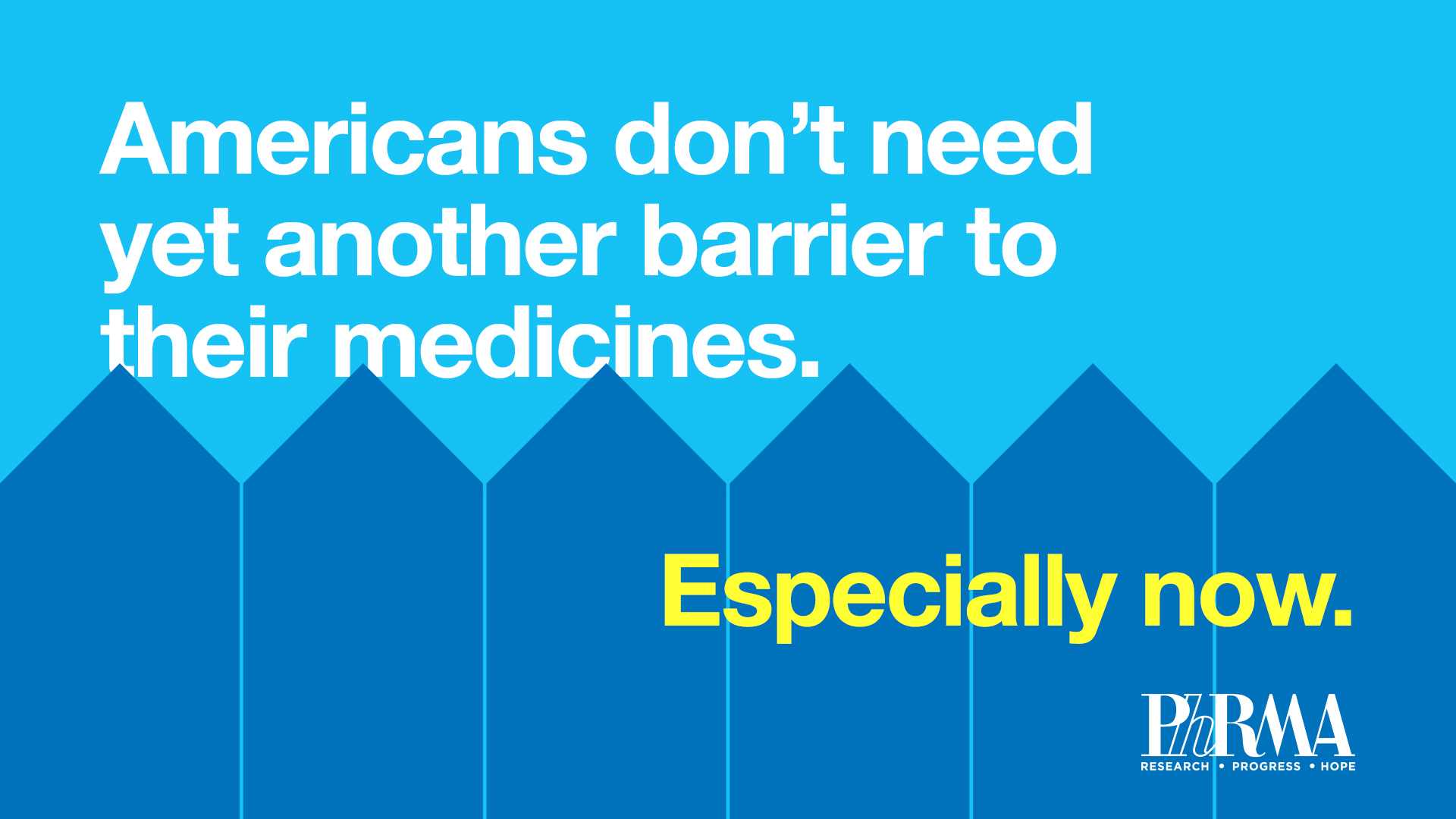| |
| |
| |
| Presented By PhRMA |
| |
| Axios Vitals |
| By Tina Reed ·Mar 18, 2022 |
| Happy Friday, Vitals readers. Today's newsletter is 913 words or a 3½-minute read. 🚨 Situational awareness: Moderna has asked the FDA for an emergency authorization that would allow all adults to receive a second COVID-19 booster, Axios' TuAnh Dam reports. |
| |
| |
| 1 big thing: Hospitals' old spending fights resurface |
 |
|
| Illustration: Aïda Amer/Axios |
| |
| Forces in New York City, California and elsewhere are leading a new push to rein in hospital prices, reviving a fight that's been on hold for most of the pandemic, Axios' Adriel Bettelheim writes. Driving the news: A union health fund representing service workers in 11 states and Washington, D.C., is calling on New York State lawmakers for help and weighing whether to team up with other labor groups to gain leverage in negotiations with hospitals. - The effort drew praise Thursday from New York City Mayor Eric Adams.
- Colorado employers have already banded together to directly negotiate with local hospitals and insurance companies, per Bloomberg News.
- California Gov. Gavin Newsom has called for creating an Office of Health Care Affordability to set limits on hospital, physician and insurer costs — and to fine those that don't comply.
- Legislators in half of the states have debated transparency bills that, among other things, would force hospitals to disclose prices or in some cases cap cost increases, per the National Academy for State Health Policy.
Between the lines: The focus on hospital pricing is driven by a growing gap between what employers, unions and private insurers pay hospitals compared with what Medicare pays for the same services. The other side: Hospitals have long argued that government programs like Medicare pay too little, and that they have to charge privately insured patients more to make ends meet. The pandemic has also disrupted many hospitals' business models — for example, by forcing the cancellation of elective procedures. Our thought bubble: Old health cost fights are resurfacing as the pandemic ebbs, putting political pressure on providers that were hailed as heroes and seen as largely untouchable during the worst of the crisis. Share this story. |
    |
| |
| |
| 2. Looming vaccine deadline |
 |
|
| Illustration: Brendan Lynch/Axios |
| |
| The U.S. government needs to contract with coronavirus vaccine makers by the end of the month in order to have enough booster shots for most Americans this fall, but can't proceed until Congress approves more money, two senior Biden administration officials tell Axios' Caitlin Owens. Why it matters: The debate over another round of booster shots is already heating up, and some experts are skeptical that they'll even be needed soon. - But there's no telling what will happen between now and September when the administration wants to have doses on-hand in case they're needed.
What they're saying: "If you want doses in the fall, we need to go to contract now. Not going to contract now puts those doses at risk," one of the senior officials tell Axios. - "We have to be prepared for a booster campaign beginning in September, in the fall."
The big picture: Falling behind on booster shots is one of many consequences the administration has warned of if it doesn't get more COVID relief money soon. A $22.5 billion request has been ensnared in a congressional funding fight. Read the rest. |
    |
| |
| |
| 3. Ignoring abortion access gets harder for companies |
 |
|
| Photo illustration: Avishek Das/SOPA Images/LightRocket via Getty Images |
| |
| Citigroup's health insurance benefits grabbed headlines this week after it was revealed they will cover travel expenses for U.S. employees seeking abortions, Axios' Emily Peck writes. Why it matters: Even as corporations became more vocal around social and political issues in recent years, abortion has remained a third rail. - But since Texas effectively banned the procedure last year, forcing women in the state to go elsewhere for care, staying silent on abortion is harder for employers.
The big picture: Citi appears to be the first public company to officially update its employee health care policy in response to the changing legal landscape. - Apple, which has a big presence in Texas, reportedly will also cover employee travel expenses for abortions, but has not publicly confirmed the policy.
- Dating companies Match and Bumble announced charitable funds to help women pay for reproductive care.
The other side: Abortion opponents were quick to criticize Citi. - "Nothing more than a PR stunt by a 'woke' company to support a culture of death," George P. Bush, the state's Republican land commissioner, told Bloomberg.
|
    |
| |
| |
| A message from PhRMA |
| Voters want Congress to address health insurance |
| |
 |
| |
| Many Americans reject so-called government "negotiation" once they learn it could sacrifice access, choice and innovation. The story: Respondents find health care coverage costs unreasonable and a top priority health care issue for policymakers to address today. Read more in the new survey. |
| |
| |
| 4. Attacks on 43 Ukraine health care facilities |
| The WHO has verified 43 attacks on health care facilities in Ukraine since Russia invaded the country. Zoom in: CNN examined one such attack on a maternity hospital in Mariupol, showing evidence it was civilian patients who were injured and killed there, not military members, as Russia later claimed. What they're saying: Calling for the attacks to stop, WHO Director-General Tedros Adhanom Ghebreyesus also put out a plea for more financial support for health care in Ukraine. - "Huge amounts of money are being spent on weapons. We ask donors to invest in ensuring that civilians in Ukraine and refugees receive the care they need," he said in remarks, according to NPR.
|
    |
| |
| |
| 5. Lockdowns in China |
 |
|
| Photo: Wang Gang/Future Publishing via Getty Images |
| |
| A woman looks at picked-over shelves of groceries in a supermarket in Shanghai on Thursday, in the photo above. - Residents have been stocking up on food amid an expanding lockdown aimed at curbing one of China's worst COVID-19 outbreaks since the pandemic first emerged in 2019.
- China's President Xi Jinping on Thursday promised to reduce the economic and social impacts of the country's strict pandemic controls, in his first acknowledgment of the costs of the country's zero COVID policies, the Wall Street Journal reported.
|
    |
| |
| |
| 6. Dog of the week |
 |
|
| Eddie and Lucy. Photos courtesy of Kate Robinson |
| |
| Meet Eddie and Lucy, submitted by readers Kate and John Robinson. - While Lucy is more laid back, Eddie is a COVID rescue puppy who is a "lovebug" and enjoyed being constantly by his humans' sides throughout the pandemic. He has not appreciated Kate's recent return to the office a couple of days a week.
- "We have pillows and rugs to show his dismay," Kate wrote. Oh, Eddie ...
|
    |
| |
| |
| A message from PhRMA |
| Voters want Congress to address health insurance |
| |
 |
| |
| A decisive majority of Americans (86%) agree Congress should crack down on abusive health insurance practices impacting patients' access to care. Why it's important: Greater transparency and accountability within the current health insurance system. Read more in new poll. |
| |
 | It's called Smart Brevity®. Over 200 orgs use it — in a tool called Axios HQ — to drive productivity with clearer workplace communications. | | |
Post a Comment
0Comments